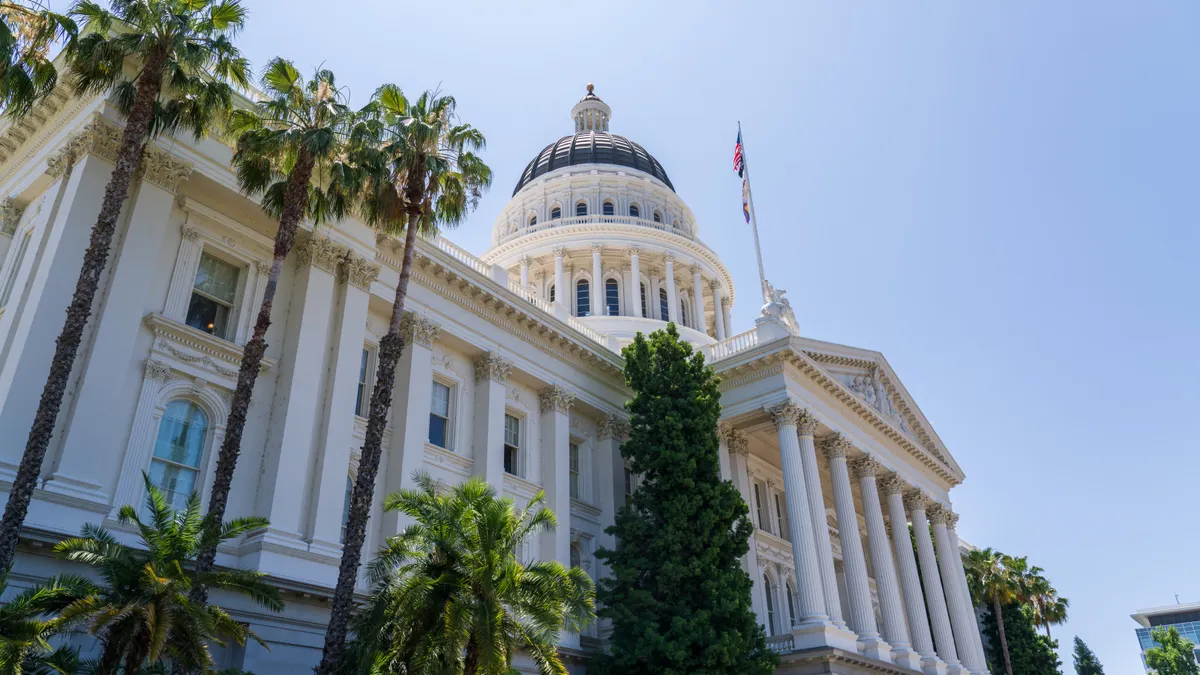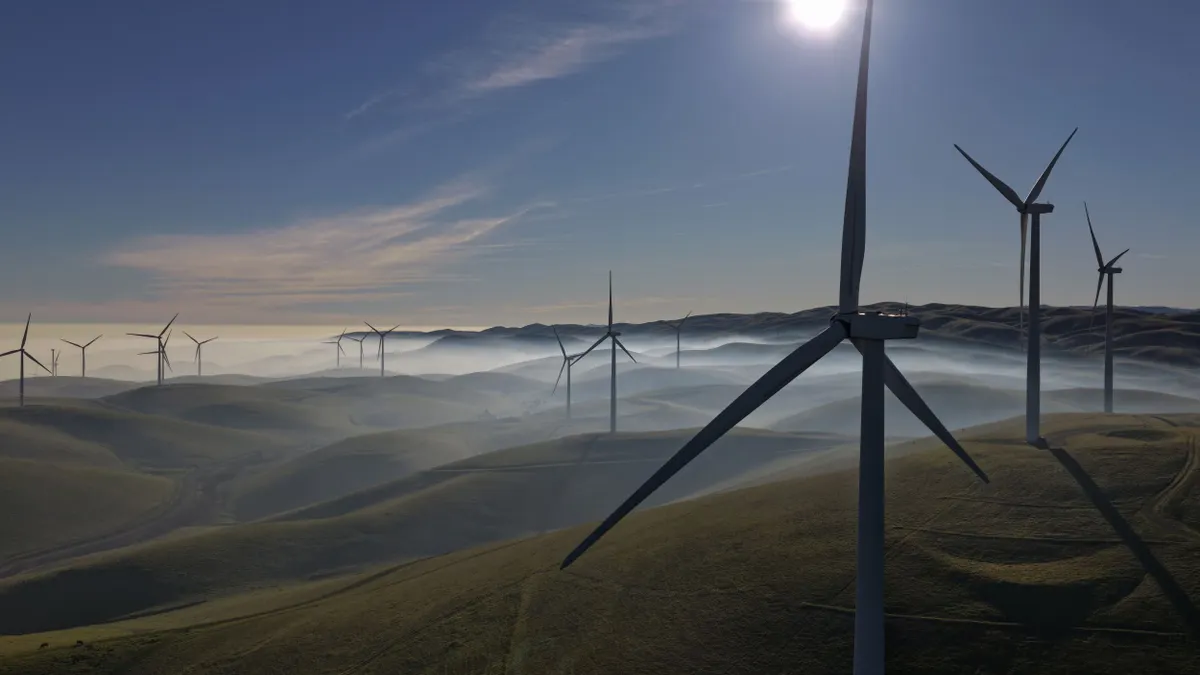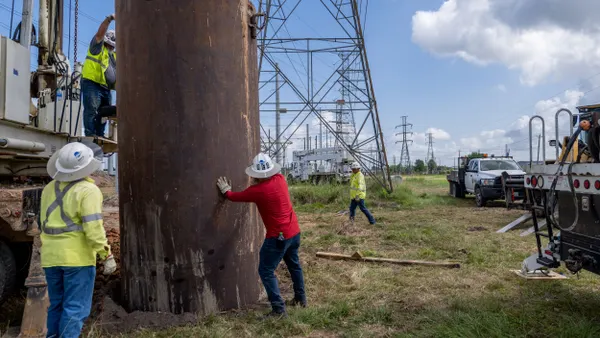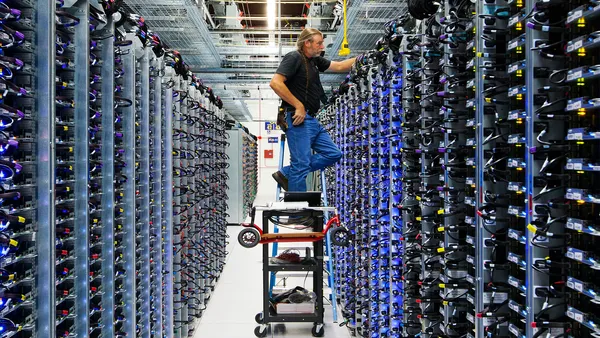Dive Brief:
-
California lawmakers released three new or rewritten bills on Wednesday that could turn the California Independent System Operator into an independent regional entity, extend the state's popular carbon market program and provide additional funds for its ailing wildfire liability insurance program.
-
The three bills, billed as a package of legislation intended to combat rising energy costs and climate change, have won the support of a broad coalition of advocacy groups. But some of the state's utility executives have criticized key components of the package.
-
All three bills need just one final vote before the legislative session ends on Friday to advance to the governor's desk.
Dive Insight:
Policy experts say it's not uncommon for California lawmakers to release new bill language mere days before the end of the session — typically after months of backroom negotiations with stakeholders. But Independent Energy Producers Association CEO Jan Smutny-Jones said the number of significant, last-minute energy bills this year is unusual.
California lawmakers are still mulling at least three bills with significant implications for state and regional energy policy. And language related to two of these measures, a proposed $18 billion replenishment of the state's ailing Wildfire Fund and an effort to extend its popular cap-and-trade carbon emissions program through 2045, remained unavailable until both measures were incorporated into existing bill files on Wednesday morning.
SB 254, an existing bill that originally addressed funding mechanisms for transmission and wildfire mitigation projects, now contains provisions to raise additional revenue for the state's Wildfire Fund, which many experts fear could face a shortfall should the state experience another catastrophic fire in the near future. The Wildfire Fund pays legal claims brought against California utilities in the event those utilities are found to be responsible for starting a wildfire. The independent system operator proposal has moved from SB 540 to AB 825, and the cap-and-trade extension now appears in AB 1207.
The Natural Resources Defense Council issued statements early Wednesday urging state lawmakers to adopt all three of the revised bills, arguing the newly amended language removed controversial provisions from the original proposals — such as a requirement that political appointees from California oversee the new regional ISO — and that the current bills would save Californians billions on their energy bills.
“While the Trump administration attacks California and undercuts jobs in wind, solar, and electric vehicles, our state leadership came together around a package of bills to lead the clean energy transition into the next decade,” Victoria Rome, director of California government affairs for NRDC, said in one of the statements. “By reauthorizing the cap and invest program, securing the wildfire fund, and shifting climate incentives from fossil fuels to electrification, California can make electricity more affordable and continue investing in programs that support community resilience. Legislators should support this package and send it to Governor Newsom’s desk right away.”
Other groups, including the Environmental Defense Fund and Advanced Energy United, also expressed support on Wednesday for AB 825.
But executives at Edison International, Sempra, and PG&E all told investors earlier this year that they planned to push back on lawmaker's plans to require additional payments into the wildfire fund. SB 254 currently contains provisions that would allow the fund administrator to request additional payments from participating utilities of up to $3.9 billion.
“We don’t foresee and frankly, don’t see a need for having upfront contributions like there were in AB 1054 previously,” Edison International President and CEO Pedro Pizarro said in August. “The process of going through claims can take quite a long time and so we don’t anticipate that there would be a very rapid depletion of the fund.”
Meanwhile, the cap-and-trade program faces its own challenges. While the core of the proposal — extending the program for another 15 years — is relatively noncontroversial given its popularity with stakeholders, Smutny-Jones said the as-yet unreleased bill that would codify such an extension has become mired in a debate about who exactly should benefit from the considerable monies raised by the program.
“I represent co-generation and the rest of the gas fleet, so we were some of the first people to pay into the cap-and-trade program, and we put in six billion or so over the years,” he said, adding that his association would prefer to see the program extended as is, but that other organizations want to see changes to how the funds are dispersed.
An analysis released Wednesday afternoon by Capstone concluded all three bills were likely to pass before the close of the legislative session on Friday. But even if one fails to meet the deadline, Smutny-Jones said, “there was talk at one point about special sessions.”














